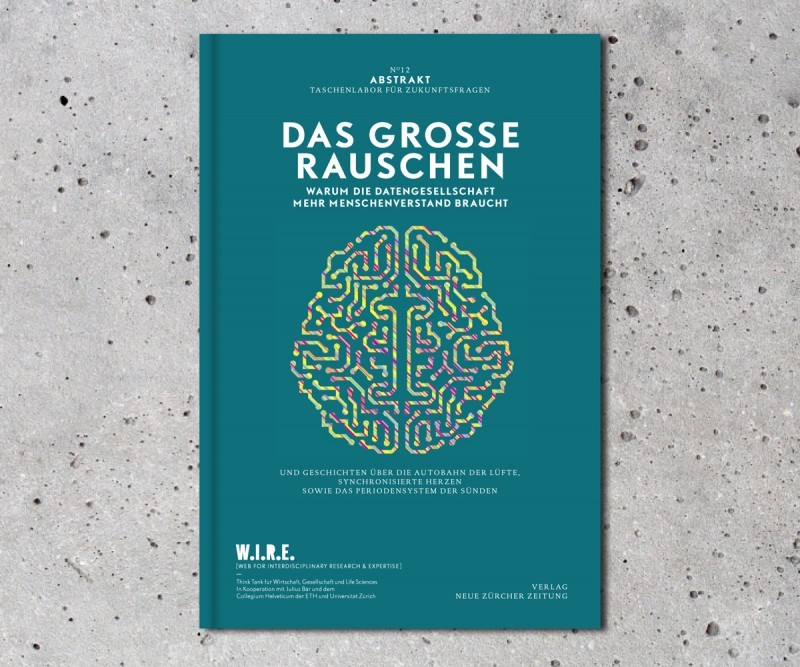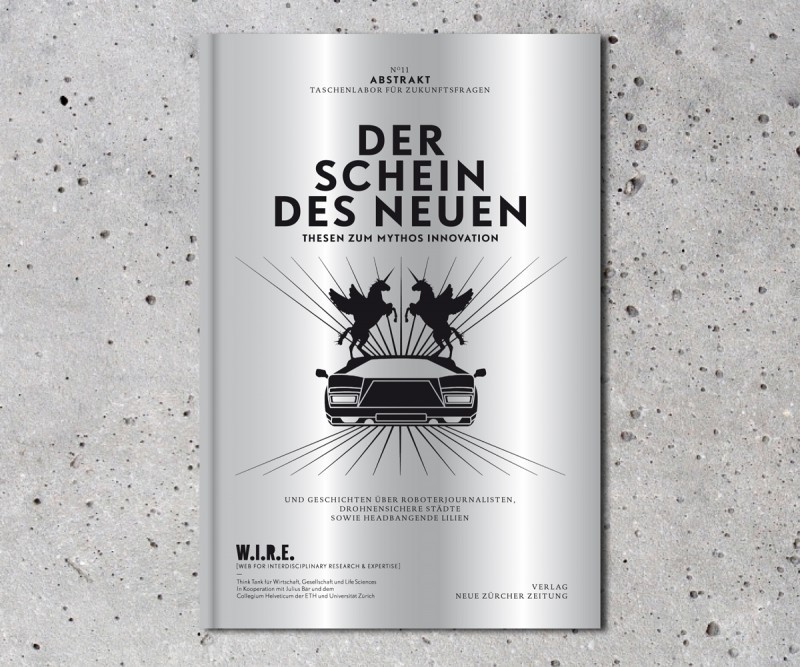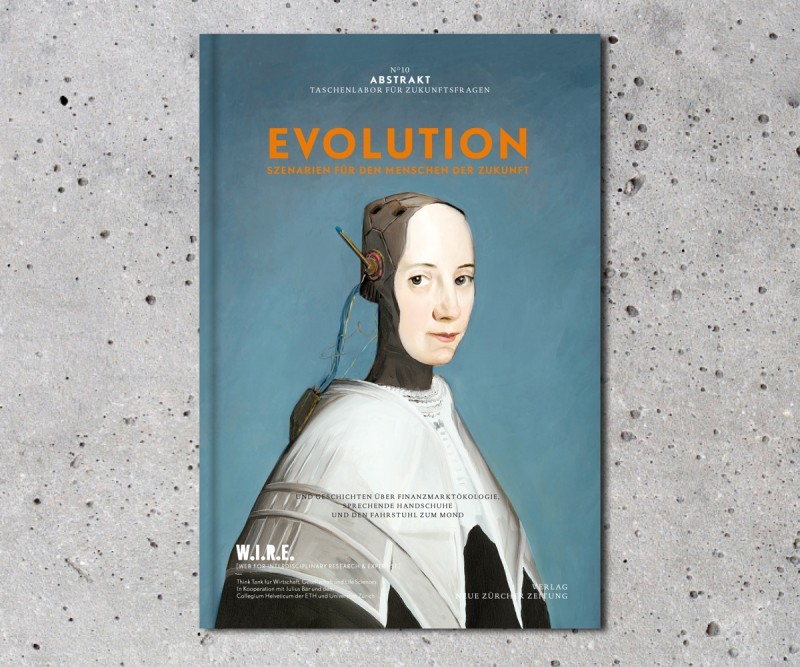19:00
BOOK RELEASE ABSTRAKT N°12 - WHITE NOISE
Sphères, Zurich
"Big Data" is a buzzword synonymous with the hope that more data will mean more knowledge, transparency and economic prosperity. However, any time expectations are raised in this way, they have to be balanced by a critical analysis of the consequences. There are already various indications that the increased volume of data will not lead to more transparency but will ultimately remain white noise.
ABSTRAKT N°12 went in search of answers to the question of what the data society will mean for us. At the launch party, the public debated with ETH socio-physicist Dirk Helbing and literature professor Philipp Theisohn on the limitations of intelligent algorithms.
19:00
BOOK RELEASE ABSTRAKT N°11 - THE ALLURE OF THE NEW
Sphères, Zurich
Innovation has degenerated into a buzzword. What it is, or how it can be measured, escapes our knowledge. And how to create it deliberately is quite beyond us. It’s time, then, to examine the myth of innovation and the allure of the new – critically, but foresightedly.
ABSTRAKT N°11 faced up to this challenge and has examined the subject of innovation in detail. At the launch party, philosophy professor Günter Abel explained why tacit knowledge is such a crucial yet frequently neglected resource for true innovation. In addition, innovation scientist Annina Coradi gave insights into current research and revealed what kind of conditions in the work setting will foster new ideas.
19:00
BOOK RELEASE ABSTRAKT N°10 - EVOLUTION
Sphères, Zurich
Our environment has changed hugely over the last 200 years. What will mankind’s future be like in the light of new environmental conditions? To what extent will natural selection mechanisms and the survival of the fittest still apply? And how far can and should we influence our further development?
ABSTRAKT N°10 addressed these and other questions. Stephan Sigrist, Head of W.I.R.E., and Gerd Folkers, Director of the Collegium Helveticum, invited guests at the launch party to share insights, opinions and a dialogue on the evolution of mankind.







